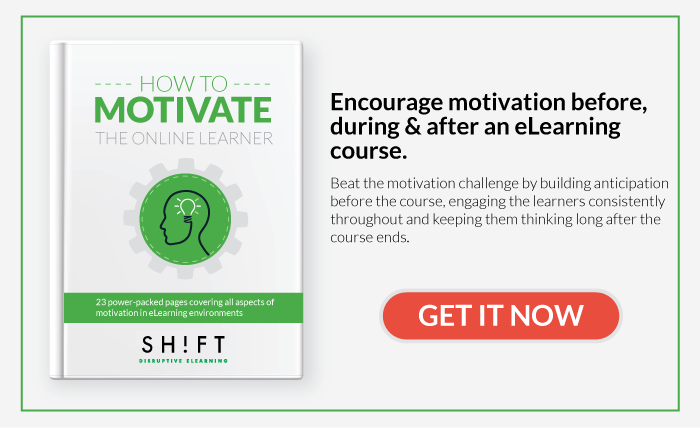There is no question that working with adult learners is different than working with “traditional” college students. Someone with several years’ worth of career experience and additional responsibilities outside of work is most likely going to have different expectations from their instructors and coursework than someone who is still in the exploratory stages of learning and focused on the overall college experience.
Many adult learners are there specifically to build skills to advance their careers and are making sacrifices in other areas of their lives to do so, so it’s important for those developing adult training programs to focus on what matters to these students in order to keep them engaged.
And while many of the factors that keep any student engaged in their education apply to adult students - compelling graphics, interesting materials, unique teaching techniques, etc. - by far the most effective means of keeping adult learners engaged is to make the coursework RELEVANT to them.
These students aren’t as willing to spend time on courses that don’t directly relate to their careers or offer practical skills they can put to use right away at their job, so it’s imperative that you communicate the relevancy of the learning from the very start.
There are several ways that you can go about doing this.
1) Follow Industry Trends
One of the most important things you can do to ensure that your training programs are relevant to learners is to follow industry trends.
For example, most people who study engineering do so with the intent of becoming an engineer or engaging in the technical aspects of the field in some way. However, there is a growing trend to hire people with engineering experience for senior leadership roles. “Forbes” even published an article outlining why engineers make great CEOs, highlighting their tenacity, attention to detail, and efficiency, among other traits. So while it might seem on the surface that only those in the engineering field should consider taking engineering courses online, those courses may also be relevant to those who want to take on leadership roles as well.
By staying abreast of the industry trends, you can make those connections and demonstrate value to adult learners.
2) Use Your Students’ Experience to Your Advantage
When you are working with students who have some experience in the subject area, they can serve as resources for learning. By designing learning activities that allow them to both assess their own experience and learn from the experiences of others, the learning is more meaningful than when it is based simply on case studies or theoretical situations.
Take the time to get to know your audience and get a sense of where they are in their careers, what type of experience they have, what their job descriptions entail, and what they hope to accomplish. With that information as a baseline, you can better tailor the classwork to the individuals and make the experience relevant.
Grab this free template: A Template to Carry Out an eLearning Audience Analysis
3) Explain the “Why.”
Nearly everyone has sat in a class at one point or another and wondered why they had to be there and whether they would actually use the information they were expected to learn.
Don’t make your adult learners guess why you are covering certain material - tell them. Explain the purpose of every module and lesson, using real-world outcomes related to student goals.
This is especially important for those students who might be somewhat hesitant about going back to school, or who feel like they are being forced to take courses when they aren’t really sure they want or need to. By explaining the benefits of the learning you can build enthusiasm, or at the very least, reduce any lingering resentment about having to put in the time for education.
Also read: Stop Blah, Blah eLearning! 5 Rules for Creating Relevant Courses
4) Stay focused
Whether the class takes place in person or online, students want to know that their time is valued. They don’t want to waste hours on pointless discussions or tasks that don’t align with the goals of the class - or worse, don’t relate to the topic at all. That doesn’t mean you need to be rigid and never engage on a personal level, but students aren’t there to waste their time.
For online classes, this means carefully moderating discussions to ensure they remain on topic and discouraging bland, vague, or pointless responses that don’t add anything to the conversation. Make every moment count, and be respectful of your students’ time. Do not bore your learners with irrelevant content. This is especially true of courses geared for the C-suite.
Also read: Breaking the Code: What Motivates Adult Learners?
Many of the techniques to engage adult learners apply to traditional students as well, but are more crucial for maintaining the interest and commitment of older students. If you can keep the sense of relevance, there is a good chance that your students will leave your class feeling energized and excited, and ready to take on new challenges.
Related read: 4 Elements to Effective Adult Learning


